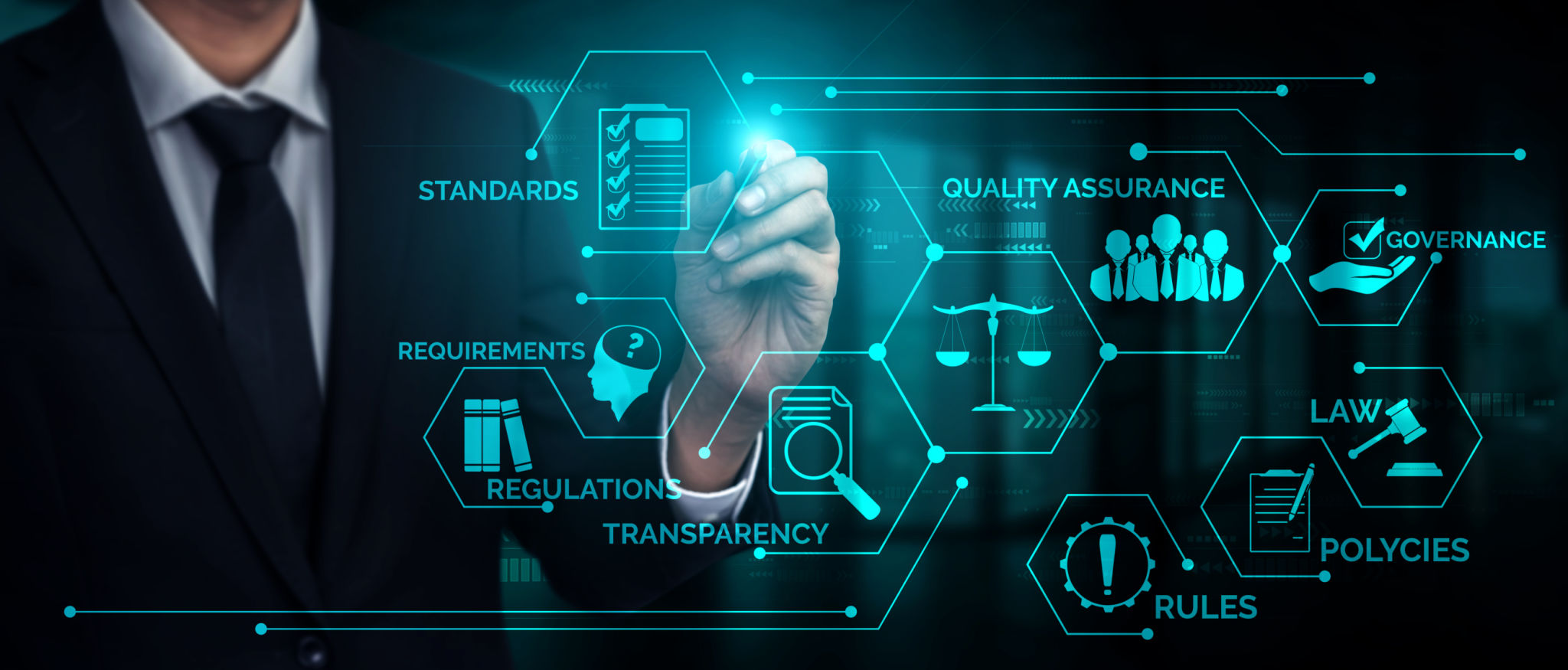The AI-Powered Revolution in Privacy Policies: Protecting User Rights in the Digital Age
In an era where data is the new oil, privacy policies have become the cornerstone of trust between companies and consumers.
However, many organizations still struggle to create transparent, user-friendly policies that truly protect individual rights. This article explores how artificial intelligence (AI) can revolutionize the approach to privacy policies, addressing common pitfalls and enhancing user protection.

AI-Driven Data Minimization
One of the most pressing issues in privacy policies is excessive data collection. AI can play a crucial role in implementing effective data minimization strategies:
- Intelligent Data Auditing: AI algorithms can analyze data usage patterns to identify unnecessary data collection, helping companies streamline their processes.
- Automated Data Categorization: Machine learning models can categorize data based on sensitivity and necessity, ensuring only essential information is collected and retained.
Example: Netflix uses AI to analyze viewing habits, allowing them to personalize content while minimizing the collection of extraneous personal data.

Natural Language Processing for Clear Communication
Vague language in privacy policies often leaves users confused about how their data is being used. AI-powered natural language processing (NLP) can address this issue:
- Readability Analysis: NLP algorithms can assess the clarity of privacy policies, suggesting improvements to make them more understandable to the average user.
- Automated Simplification: AI can help rewrite complex legal jargon into plain language, ensuring policies are accessible to all users.
Example: Google has implemented AI-driven readability tools to simplify their privacy policy, resulting in a 70% increase in user comprehension.
AI-Enhanced User Control Systems
Providing users with granular control over their data is essential. AI can significantly improve this aspect:
- Intelligent Privacy Dashboards: AI-powered interfaces can offer personalized privacy recommendations based on user behavior and preferences.
- Predictive Privacy Settings: Machine learning models can anticipate user privacy needs and suggest appropriate settings proactively.
Example: Facebook's Privacy Checkup feature uses AI to guide users through their privacy settings, offering tailored recommendations.
AI-Powered Third-Party Risk Assessment
Extensive third-party sharing remains a significant concern. AI can help mitigate these risks:
- Automated Vendor Assessment: AI algorithms can continuously monitor and evaluate third-party data practices, flagging potential risks in real-time.
- Smart Data Sharing Protocols: Machine learning models can determine the minimum necessary data to share with third parties, reducing exposure.
Example: Microsoft employs AI-driven tools to assess the security practices of its vendors, ensuring compliance with their privacy standards.

Intelligent Data Retention Management
Vague data retention policies are a common issue. AI can provide more precise and dynamic retention strategies:
- Predictive Retention Modeling: AI can analyze data usage patterns to determine optimal retention periods for different types of data.
- Automated Data Lifecycle Management: Machine learning algorithms can identify and delete data that is no longer necessary, ensuring compliance with retention policies.
Example: Amazon uses AI to manage data retention in its AWS services, automatically deleting unnecessary data based on usage patterns and compliance requirements.
AI-Driven Policy Updates and Consent Management
Unilateral policy changes often catch users off guard. AI can help create a more transparent and user-friendly update process:
- Automated Change Detection: AI can analyze policy updates, highlighting significant changes and their potential impact on user privacy.
- Smart Consent Management: Machine learning models can personalize the consent process, ensuring users understand the implications of policy changes.
Example: Apple uses AI to simplify its app privacy labels, helping users understand data collection practices at a glance.

Enhanced Protection for Children's Data
AI can play a crucial role in safeguarding children's privacy:
- Age Verification Systems: Machine learning models can help verify user age more accurately, ensuring appropriate protections for minors.
- Content Filtering: AI algorithms can identify and filter out content unsuitable for children, enhancing overall online safety.
Example: TikTok employs AI-powered age estimation technology to enforce age-appropriate content and privacy settings.
AI-Powered International Data Transfer Compliance
Navigating international data transfer regulations is complex. AI can simplify this process:
- Automated Compliance Checking: AI systems can continuously monitor data flows, ensuring compliance with various international regulations.
- Dynamic Data Localization: Machine learning algorithms can optimize data storage locations based on user geography and applicable laws.
Example: IBM uses AI to manage data residency requirements across its global cloud infrastructure, ensuring compliance with local regulations.

The AI Revolution: Transforming Industries, Challenging Norms
Artificial Intelligence (AI) is rapidly reshaping the business landscape across industries. This article explores AI's transformative potential, its limitations, and the ethical considerations surrounding its implementation.
Key AI Applications Across Industries
1. Financial Services: AI enhances fraud detection and risk assessment, potentially reducing false positives by up to 60%.
2. Healthcare: AI assists in diagnosis and drug discovery, with some systems outperforming human experts in specific tasks.
3. Manufacturing: Predictive maintenance and quality control applications can significantly reduce costs and improve efficiency.
4. Retail: AI-driven personalization and inventory management are boosting sales and reducing waste.
5. Education: Personalized learning platforms are transforming educational approaches, though questions remain about AI's role in assessment.
Emerging Trends and Limitations
While AI shows promise, it's crucial to understand its current limitations:
- Data Dependency: AI systems require vast amounts of high-quality data, which isn't always available.
- Explainability Challenges: Many AI models operate as "black boxes," making it difficult to understand their decision-making processes.
- Generalization Issues: AI often struggles to apply learning from one context to another, limiting its adaptability.
Emerging trends like quantum AI and neuromorphic computing may address some of these limitations, but they're still in early stages of development.
Ethical Considerations and Governance
The widespread adoption of AI raises significant ethical concerns:
- Bias and Fairness: AI systems can perpetuate and amplify existing societal biases.
- Privacy: The data hunger of AI systems poses substantial privacy risks.
- Job Displacement: While AI creates new opportunities, it also threatens to automate many existing roles.
Governance frameworks are evolving to address these issues, with initiatives like the EU's proposed AI Act setting the stage for comprehensive AI regulation.
Environmental Impact
The energy consumption of large AI models is a growing concern. Training a single AI model can emit as much carbon as five cars over their lifetimes. Sustainable AI development is becoming a critical focus area.
Interdisciplinary Convergence
AI's impact is amplified through its convergence with other technologies:
- AI and IoT: Enabling smarter, more responsive systems in areas like smart cities and industrial IoT.
- AI and Blockchain: Enhancing security and transparency in AI decision-making processes.
- AI and Robotics: Advancing the capabilities of autonomous systems in manufacturing, healthcare, and beyond.
Preparing for an AI-Driven Future
Businesses and individuals can prepare for the AI revolution by:
1. Investing in data infrastructure and literacy.
2. Fostering a culture of continuous learning and adaptability.
3. Engaging in discussions about AI ethics and governance.
4. Exploring AI applications specific to their industry or field.
5. Considering the environmental impact of AI implementations.

The Future of AI in Privacy Protection?
As we move forward, the integration of AI in privacy management will become increasingly crucial. By leveraging AI technologies, companies can create more transparent, user-friendly, and effective privacy policies. This not only helps in compliance with evolving regulations but also builds trust with users, turning privacy into a competitive advantage.
However, it's important to note that while AI offers powerful tools for privacy management, it must be implemented ethically and with human oversight. The goal is to use AI to enhance human decision-making in privacy matters, not to replace it entirely.
As users, we must stay informed about our rights and how our data is being used.
The AI revolution offers immense opportunities but also presents significant challenges. As we navigate this transformative era, a balanced approach that embraces innovation while addressing ethical, environmental, and societal concerns is crucial. The future of AI lies not in replacing human intelligence, but in augmenting it to solve complex global challenges.
By understanding AI's potential and limitations, engaging with its ethical implications, and preparing for its widespread adoption, we can work towards a future where AI benefits society as a whole. The journey ahead requires collaboration across disciplines, continuous dialogue between stakeholders, and a commitment to responsible AI development and deployment.
With AI-powered tools at our disposal, we can look forward to a future where privacy policies are not just legal documents, but dynamic, understandable agreements that truly protect our digital lives.
